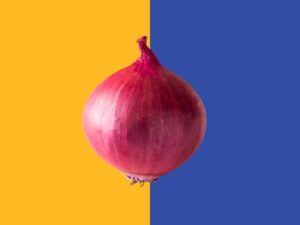Baba ganoush is a popular Middle Eastern dip that is made with eggplant, tahini, lemon juice, garlic, and other seasonings.
The creamy and flavorful dip is a staple in many households and is often served with pita bread, vegetables, or as a spread on sandwiches.
But what happens when you have leftovers and you want to save them for later? Can you freeze baba ganoush?
This is a common question that many people ask, and in this article, we will explore the answers.
Understanding Baba Ganoush
Baba ganoush is a creamy dip made from roasted eggplant, tahini, lemon juice, garlic, and other seasonings. The eggplant is roasted until it is soft and then blended with the other ingredients to form a smooth and creamy dip. Baba ganoush is a versatile dish that can be used as a dip, spread, or sauce, and it is a staple in many Middle Eastern households.
Ingredients used in Baba Ganoush
The key ingredients in baba ganoush are roasted eggplant, tahini, lemon juice, garlic, and seasonings such as salt, pepper, and olive oil. Some recipes also call for additional ingredients like cumin, paprika, or parsley.
Preparing Baba Ganoush
To make baba ganoush, the eggplant is first roasted until it is soft and tender. Then, it is mashed or blended with tahini, lemon juice, garlic, and other seasonings to form a creamy dip. Some recipes call for the eggplant to be peeled before blending, while others use the skin for texture.
Flavor and Texture of Baba Ganoush
Baba ganoush has a creamy and smooth texture, with a nutty and slightly tangy flavor. The eggplant provides a mild and slightly smoky flavor, while the tahini and lemon juice add nuttiness and tanginess, respectively. The garlic and seasonings provide depth and flavor, making baba ganoush a flavorful and delicious dip.
Can You Freeze Baba Ganoush?
Freezing food is a great way to preserve leftovers and extend the shelf life of food. However, not all foods can be frozen, and some foods may change in texture or flavor when frozen. So, can you freeze baba ganoush?
Freezing food involves rapidly cooling the food to a temperature below 32°F, which stops the growth of bacteria and slows down the natural decay process. Thawing food involves bringing it back to room temperature, which allows it to return to its original texture and flavor. However, if food is not stored or thawed properly, it can become unsafe to eat.
Effects of Freezing on Baba Ganoush
Baba ganoush contains many ingredients that can be affected by freezing, including eggplant, tahini, lemon juice, and garlic. The eggplant can become mushy or watery when frozen, while the tahini can separate and become grainy. The lemon juice can cause the baba ganoush to become sour and the garlic can become overpowering.
Pros and Cons of Freezing Baba Ganoush
The main advantage of freezing baba ganoush is that it allows you to save leftovers and extend the shelf life of the dip. However, the disadvantage is that the texture and flavor of the baba ganoush may change when it is frozen and thawed.
Proper Storage of Baba Ganoush
If you do decide to freeze baba ganoush, it is important to store it properly to maintain its quality and safety. Here are some tips for storing baba ganoush in the fridge and freezer:
Tips for Storing Baba Ganoush in the Fridge
- Store baba ganoush in an airtight container in the refrigerator for up to 3-4 days.
- Cover the surface of the baba ganoush with plastic wrap or a lid to prevent air exposure and to minimize any change in flavor.
- If the baba ganoush has been opened, it is best to transfer it to a fresh container to prevent contamination.
Recommendations for Freezing Baba Ganoush
- Freeze baba ganoush in an airtight container or freezer-safe bag.
- Leave some space in the container or bag to allow for expansion during the freezing process.
- Label the container or bag with the date and contents to help keep track of the baba ganoush.
Time Frame for Storing Baba Ganoush
Baba ganoush can be stored in the refrigerator for up to 3-4 days, and in the freezer for up to 3 months. It is important to keep track of the storage time to ensure that the baba ganoush is still safe to eat.
Thawing and Reheating Baba Ganoush
When you are ready to use the frozen baba ganoush, it is important to thaw and reheat it properly to maintain its quality and safety. Here are some tips for thawing and reheating baba ganoush:
Best Methods for Thawing Baba Ganoush
- Thaw baba ganoush in the refrigerator overnight.
- If you need to thaw the baba ganoush quickly, you can use the defrost setting on your microwave or place the container or bag in a bowl of cold water.
Safety Precautions when Thawing and Reheating Baba Ganoush
- Do not leave the baba ganoush at room temperature for more than 2 hours.
- Do not thaw or reheat the baba ganoush in the microwave or on the stovetop at high heat, as this can cause the eggplant to become mushy and the tahini to separate.
Recommendations for Reheating Baba Ganoush
- Reheat the thawed baba ganoush in a saucepan on low heat, stirring occasionally until it is heated through.
- You can also reheat the baba ganoush in the microwave, using low heat and stirring occasionally until it is heated through.
Conclusion
In conclusion, you can freeze baba ganoush, but it is important to store and thaw it properly to maintain its quality and safety.
While freezing baba ganoush is a great way to save leftovers and extend the shelf life of the dip, it may affect the texture and flavor of the baba ganoush.
If you do decide to freeze baba ganoush, it is best to store it in an airtight container or freezer-safe bag, and to thaw and reheat it on low heat to minimize any changes in texture and flavor.





